British Columbia under province-wide state of emergency due to 'unprecedented' wildfires: Officials
British Columbia Premier David Eby declared province-wide state of emergency in response to unprecedented wildfires on Friday night.
Evacuation orders in B.C. expanded from 4,000 houses Friday afternoon to about 15,000 by nightfall.
“Tonight as a result of this rapid deterioration, we are declaring a provincial state of emergency to ensure that we have rapid access to any tools that we may need to respond to this situation,” British Columbia Premier David Eby said.
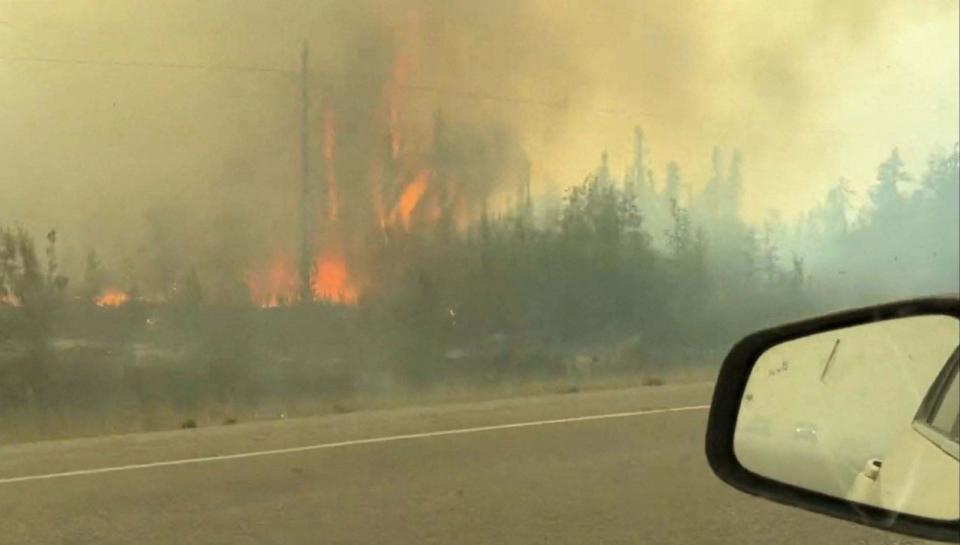
Over 380 wildfires have been raging since the beginning of the week throughout western Canada territories, according to the Canadian Interagency Forest Fire Centre.
Fire officials warned on Thursday, they would be facing "the most challenging 24 to 48 hours of the summer," as wildfires that have been ravaging western Canada.
Two wildfires of note, the Stein Mountain wildfire, which was discovered on July 12, and the McDougall Creek wildfire, which was discovered on Tuesday, are classified as "out of control" and have burned through a combined 18,000 acres as of Friday morning, according to the British Columbia Wildfire Service.
Cliff Chapman, the British Columbia director of wildfire operations, said in a statement Thursday evening that he is expecting more wildfires to erupt.
MORE: Video Gusty trade winds continue to impede Maui wildfires
"We are expecting significant growth and we are expecting our resources to be challenged from north to south in the province over the next 48 hours," he said in a statement. "Those fires will challenge even our air tanker and helicopter resources and our ground resources as we are likely to see a number of new fires happening across the province."
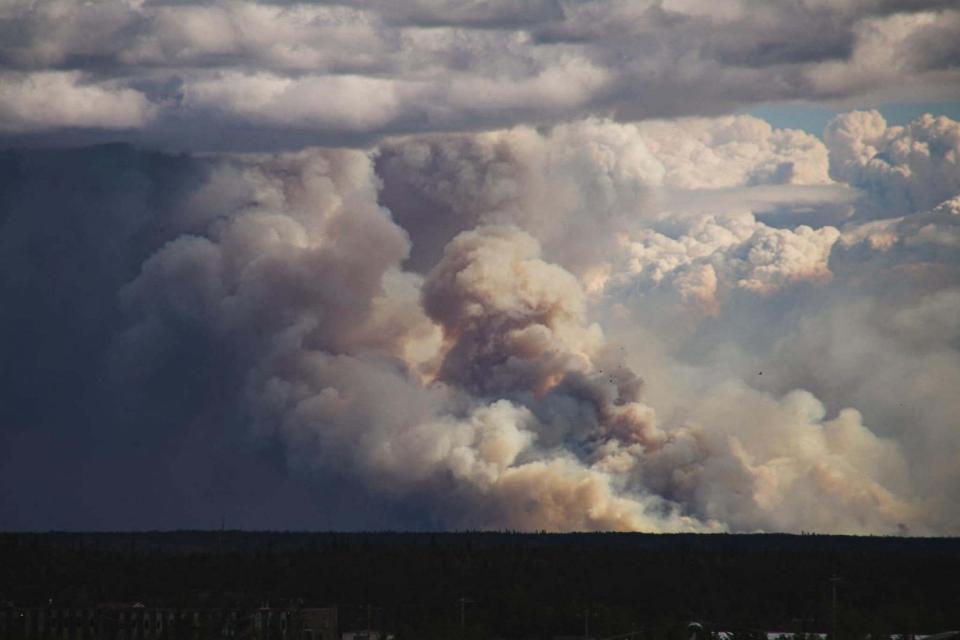
High winds in western Canada have been contributing to the spread of the flames, officials said. Several B.C. towns and cities have issued evacuation orders and alerts over the wildfires.
A local state of emergency was issued Thursday for the city of Kelowna, which has a population of over 144,000, a portion of Westbank First Nation and the Central Okanagan West Electoral Area. Sixty-eight properties located off Bear Creek Road were ordered to evacuate.
MORE: Canadian wildfire dangers should prompt more proactive mitigation from government: Experts
Residents of Yellowknife, Hay River and Fort Smith, N'dilo, Dettah and the Ingraham Trail, all in the Northwest Territories, were also ordered to evacuate this week because of the fires.
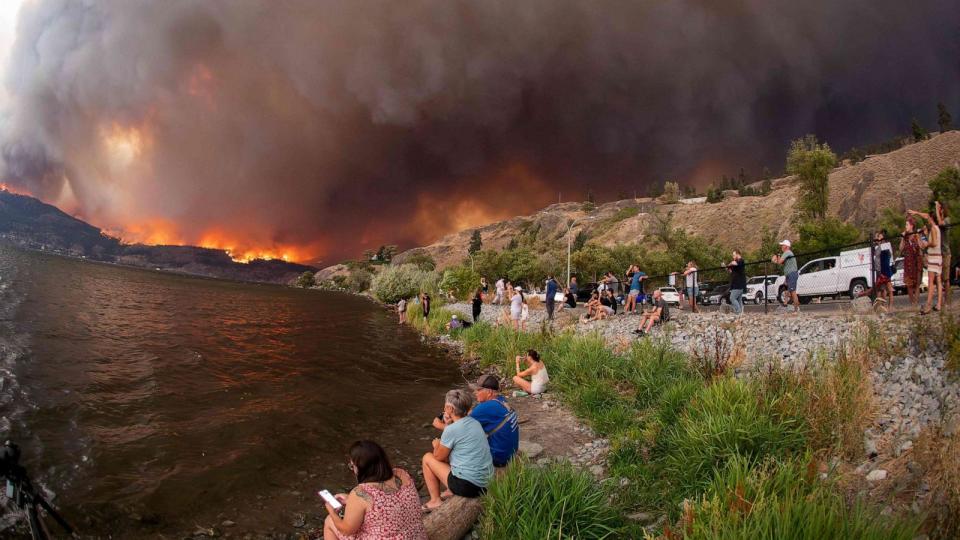
Chapman warned that 28 of British Columbia's 34 water basins continue to be operating at worst or second-worst drought levels while fighting the blazes.
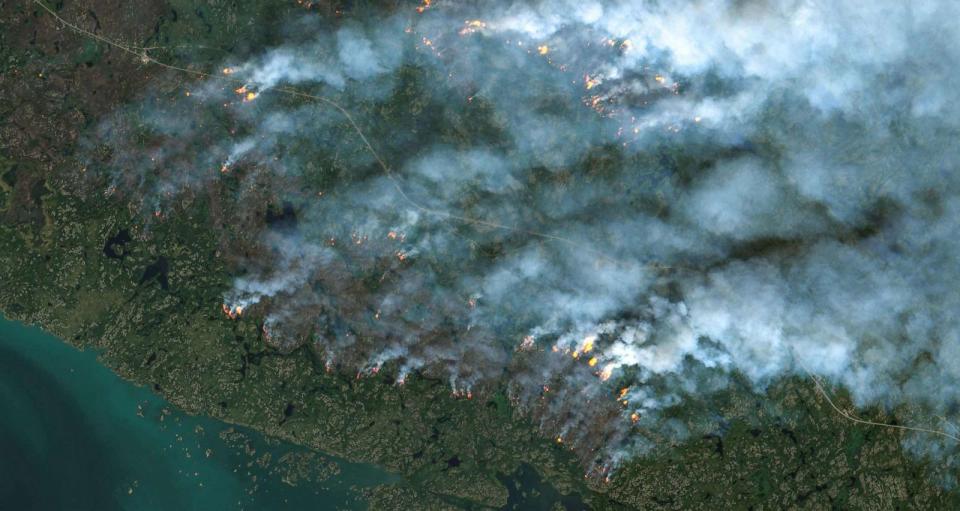
"So the drought situation is serious in British Columbia ... and the impacts of drought conditions in certain B.C. watersheds will be serious as well," he said.
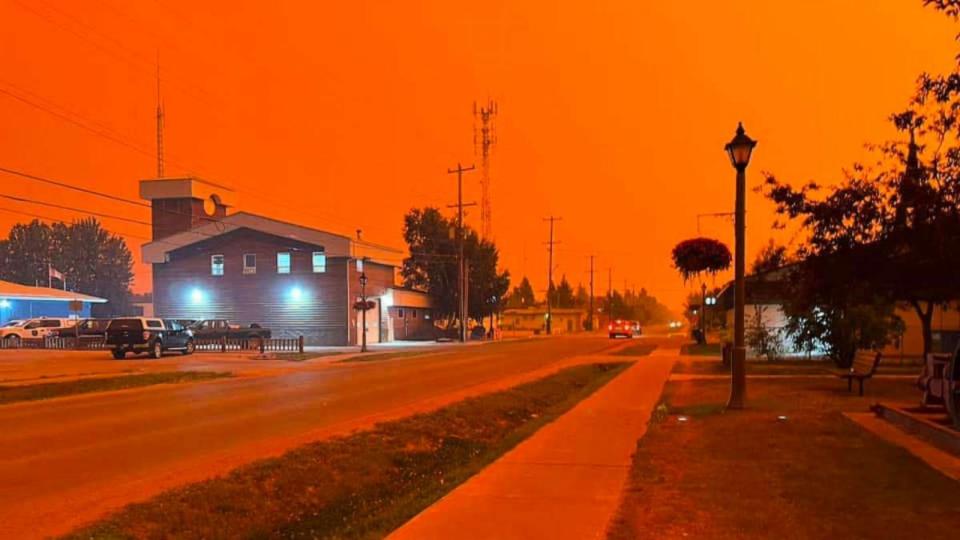
MORE: Canada marks worst wildfire season on record
Canada has seen a rise in wildfires on both coasts this summer, causing black smoke to spread for miles and into the United States.
As of Friday, the fires have burned through over 34 million acres this season, which is larger than New York state, Canadian Interagency Forest Fire Centre. This year marks the worst wildfire season on record and doubles the previous high for most acres burned, according to the Canadian Interagency Forest Fire Centre.
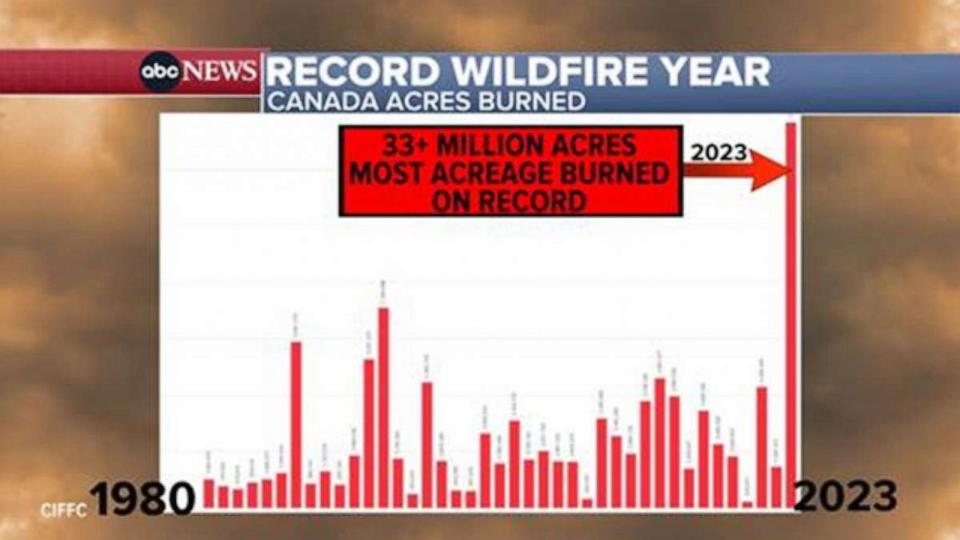
David Phillips, a senior climatologist at Environment and Climate Change Canada, a government agency, told ABC News that the fires have been worse this year because "it's been too hot and too dry for too long." Phillips noted that 50% to 60% of the country was abnormally dry during the spring months, including many agricultural regions.
In Yellowknife, only 0.3 inches of rain has fallen in the last seven weeks, which is roughly 12% of the normal precipitation for the area, according to Phillips.
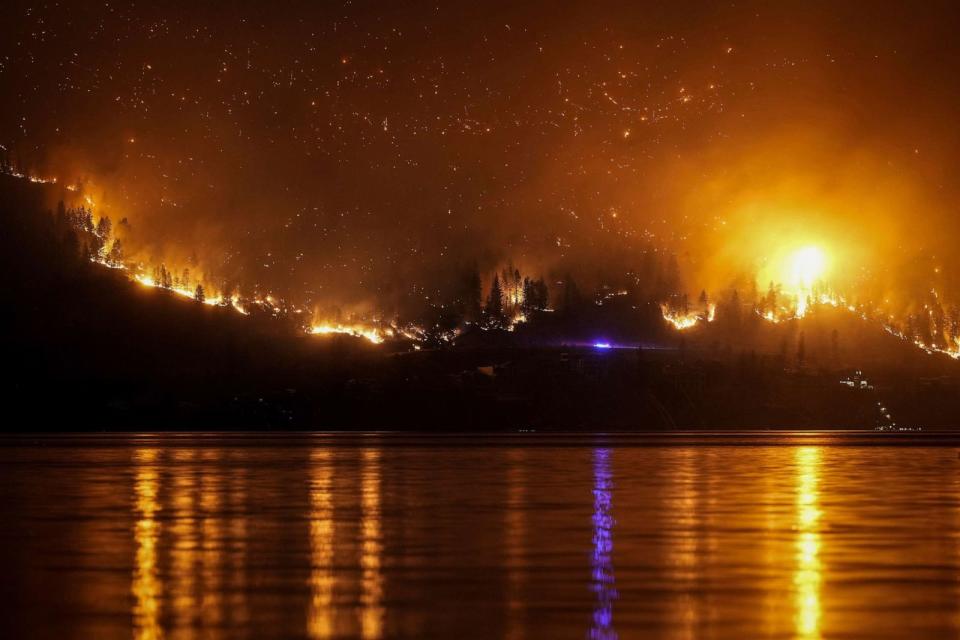
He said there was "no question" that climate change was contributing to the rise in the larger fires.
"It’s almost impossible for nature alone to do these things," Phillips told ABC News. "This wildfire season has been ramped up. These fires are bigger and badder."
ABC News' Will Gretsky, Daniel Peck and Daniel Manzo contributed to this report.
British Columbia under province-wide state of emergency due to 'unprecedented' wildfires: Officials originally appeared on abcnews.go.com

